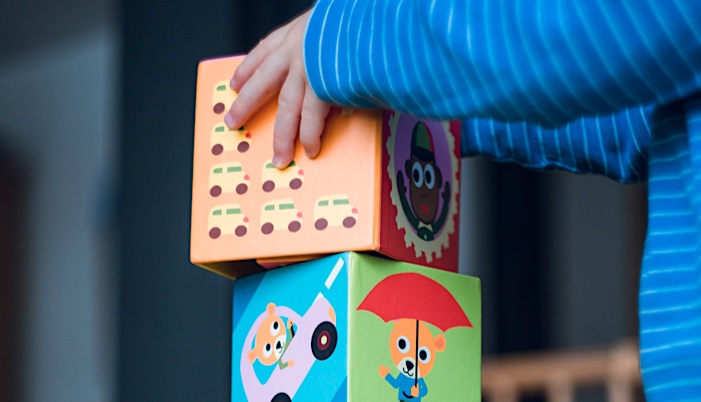Thoughts from a Preschool Teacher About Teaching a Blind Student

By Heidi S.
One of our MAPS moms, Heidi, interviewed her son’s preschool teacher, Ms. Louise Homstead. Heidi’s son, AJ, has bilateral microphthalmia and is autistic as well.
Here are Ms. Homstead’s answers to the following questions:
What thoughts did you have when you first learned you would have a child who was blind in your classroom?
I took great interest in finding out the ways this child learned. I attended several trainings and graduate level courses which helped me understand teaching approaches. Mostly, I collaborated with a team of people with equal interest (ie: parents, one:one, SP/L, OT, PT, TVI, etc.) to build approaches.
Once school got started and you got to know AJ, were things different than you expected?
We saw so many great strengths (auditory perception, auditory memory, imitation) to tap into. We were a bit perplexed to comprehend the etiology and appropriate approaches to counteract weaknesses such as lack of exploration and delays in communication.
What did you do to prepare your classroom for AJ?
We rearranged furniture in consult with the TVI to provide routes. We used auditory toys, developed as reinforcers to elicit responses. We helped peers to become “buddies.”
What things would you have liked to have known before AJ started school?
How to overcome lack of initiative to try novel experiences plus how to draw a team together with deficit of time to collaborate.
What have you learned from having AJ in your class?
More than words can tell! I have learned how incredible the human mind is. How people’s efforts can make a tremendous difference and how well someone with a talent and eagerness to learn can produce.
What advice would you give to a teacher who was going to have a child who is blind in their class for the first time?
Collaborate, Collaborate, Collaborate! Let successes move the child forward. Build social-emotional skills. Finally, friendships are vital!!

Related Posts

Eye Conditions and Syndromes, Visual Impairment
Neuralink Announces Plans to Restore Sight to the Blind with Brain Chip
Elon Musk’s company Neuralink has announced plans to begin human trials of its new “Blindsight” brain chip by the end of 2025.

IEPs
What Should I Bring to My Child’s First IEP Meeting?
Prepare for your child's first IEP meeting with confidence! Discover exactly what documents to bring, including educational records, medical info, and questions to ask.

Special Needs
5 Spring Cleaning Tips for Families of Children with Disabilities
Spring cleaning is an opportunity to create a more accessible, organized, and supportive space for your child with disabilities. Declutter, deep clean, and refresh!